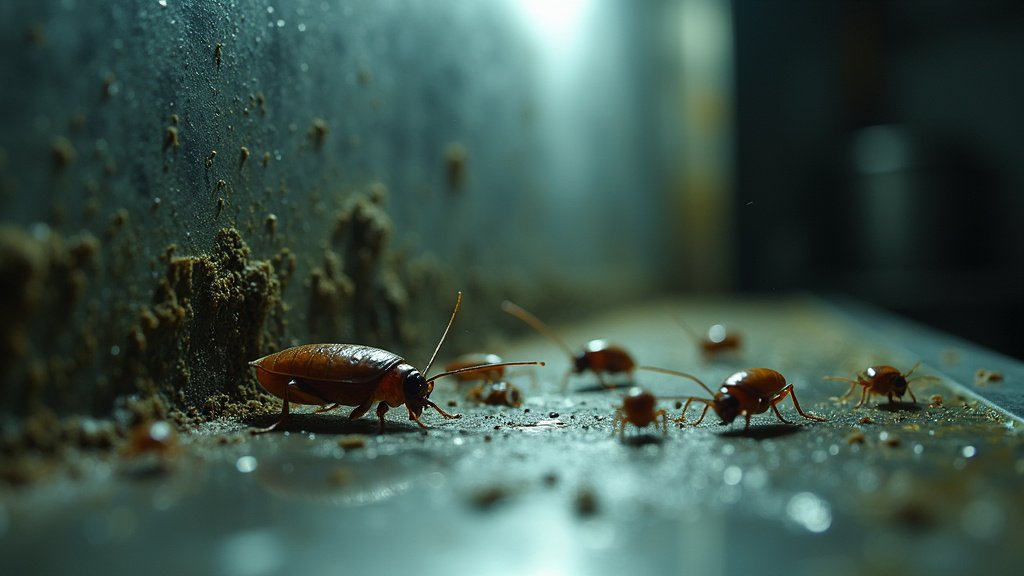MIAMI, FL – A wave of emergency closures has swept through South Florida’s popular dining scene on August 18, 2025, as inspectors from the Florida Department of Business and Professional Regulation (DBPR) uncovered alarming health and safety violations at several high-profile establishments. From live roaches and rodent droppings to mold-infested ice machines and concerning hygiene practices, the findings have cast a spotlight on critical food safety standards across the region, making this a significant piece of local restaurant news.
Widespread Concerns Across South Florida Eateries
The crackdown by the DBPR saw renowned names like Christine Lee’s, Checker’s, Subway, and Kelly’s Cajun Grill temporarily ordered shut, among others. These shutdowns underscore the ongoing vigilance required to maintain public health in a vibrant culinary landscape like Miami and its surrounding areas. Each inspection report serves as a snapshot of conditions at the time, revealing the immediate necessity for intervention when such critical violations are detected. The Florida DBPR is the primary agency responsible for overseeing and enforcing food safety regulations for restaurants, caterers, and mobile food vendors, basing its standards largely on the U.S. Food and Drug Administration’s Food Code.
Noteworthy Closures and Their Infractions
Christine Lee’s, a long-standing Asian-inspired dining institution at Gulfstream Park known for its prime sirloin steaks and extensive menu, faced ten violations following a complaint-based inspection. Inspectors documented extensive roach activity, including live roaches on an unused flat top, under and behind a fish tank, and near dishwashing areas. Dead roaches were also found under racks and near water heaters. Beyond pests, the iconic restaurant was cited for the accumulation of black/green mold-like substance inside its ice machine and an employee hygiene issue involving a worker wiping their face and then washing hands without soap before resuming food preparation.
Checker’s in Fort Lauderdale was shut down due to significant rodent activity. Inspectors found approximately 50 rodent droppings on high shelving units above a handwashing sink and dry storage, as well as near the customer order window. Even more concerning, around 10 droppings were discovered on top of a French fry dispensing machine. A cigarette butt was also reported on the cook line. Checkers has faced similar challenges in other regions in the past, with prior inspections noting issues like cross-contamination and inadequate cold holding temperatures.
Subway, a ubiquitous fast-food chain, was also impacted. One location was ordered shut after inspectors found eight live roaches on a shelf storing single-service items and one live roach crawling on a kitchen wall. Three dead roaches were also observed under a register table. Issues with cleanliness extended to soiled reach-in cooler gaskets and food debris on the kitchen floor. Past incidents at other Subway locations have included concerns about a lack of food safety certification managers, improper food storage, and microbial growth.
Kelly’s Cajun Grill at Southland Mall received one of the highest numbers of violations, tallying over two dozen. The issues included rodent droppings, live roaches, temperature abuse for time/temperature control for safety (TCS) foods, and generally soiled kitchen conditions. The establishment has a history of previous shutdowns due to similar issues, indicating a pattern of concern that regulatory bodies aim to address through rigorous re-inspection protocols.
Beyond these prominent names, Purda Vida Miami was cited for nine violations, notably numerous live flies observed in various areas. King’s Super Buffet in Lauderhill also faced closure due to droppings on food cans and a roach found on a kitchen wall.
The Broader Context of Restaurant Inspections
Restaurant inspections in Florida are conducted regularly, with frequencies ranging from one to four unannounced visits annually, based on factors like the type of food served, preparation methods, and compliance history. Violations are categorized by the DBPR as High Priority (direct threat to public health), Intermediate (could lead to high priority issues), or Basic. Common critical violations that often lead to immediate closure include pest infestations (roaches, rodents), temperature control issues for hazardous foods, improper employee hygiene, cross-contamination, and mold in ice machines.
These swift actions by the Florida DBPR aim to mitigate conditions that pose an elevated risk to public health and safety. The impact of such shutdowns on a restaurant can be significant, leading to immediate loss of revenue, damage to reputation, and the financial burden of corrective actions.
Path to Reopening and Consumer Confidence
For affected businesses, the path to reopening involves correcting all cited violations and passing a mandatory re-inspection by DBPR officials. In many cases, violations are corrected on-site, allowing for immediate resolution. However, for more severe or repeat issues, a temporary closure is enforced until compliance is achieved.
In an era where health and safety are paramount, particularly in the wake of public health crises that have impacted the restaurant industry, transparent and stringent inspection processes are crucial for building and maintaining consumer confidence. Diners in South Florida, like consumers everywhere, are increasingly aware of and concerned about hygiene and sanitation practices, making compliance not just a regulatory necessity but a business imperative. This trending news serves as a potent reminder for all food service establishments to adhere strictly to health codes, ensuring the well-being of their patrons and the longevity of their businesses. The DBPR continues its vital work, sending a clear message that public health remains non-negotiable in the Sunshine State’s bustling restaurant industry.





